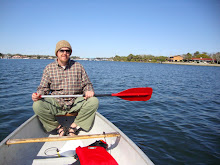I submitted this report to the Watson Foundation in late October, 2006.
Last night I was sitting in on an “environmental English” class held at the office of the Global Village of Beijing—founded in 1996, it is one of
From the moment I stepped off the plane in New Delhi, my jaw has remained in dropped-open position, and I have had to watch each step ever-so-carefully to keep from falling off this marvelously steep learning curve I am on. I began this trip feeling knowledgeable and self-confident almost to a fault, but along the way have had so many pre-conceptions about myself and the world challenged that I already feel, in some ways, like a very different person than the one who left behind the comforts of home only a few weeks ago. I have been both terrified and bold, homesick and liberated, brilliant and ridiculous, and every shade in between; probably the only sensations I have not experienced thus far are boredom or a lack of enthusiasm. On the Watson website, you say that “When they wake up in the morning most Watson Fellows ask themselves, What am I going to do today?” and that Fellows should be comfortable with that degree of freedom. Though I have not previously been offered such incredible latitude in life, I must admit that I have adjusted quite well. Thus far, the experience has been a wonderful mix of stimulating interaction and engagement, self-reflection, and communicating my lessons and joys with my wider community. I still do not possess too much of a sense as to where this whole experience is leading me, but I do know that whatever opportunities present themselves at the other end, I will be better prepared to take full advantage.
The learning began before I ever reached India, when I took advantage of a lay-over in London to meet and interview staff at the E.F. Schumacher-inspired NGO Practical Action, formerly known as the Intermediate Technology Development Group. There I spent two days digging through their extensive library, and interviewing their Policy and Programs Director and Development Education Manager, among others. Upon arriving in Delhi, I made contact with two of my primary Indian research partners—the government-sponsored think tank National Institute of Science, Technology, and Development Studies and the NGO Centre for Science and the Environment, the latter embroiled in a very interesting recent public debate with government and business leaders about perceived levels of pesticides in soda products. I also took care of some logistical issues such as securing a place to live when I return for a longer stay next March.
Almost immediately upon arriving, however, an old college roommate and fellow expat who has become something of a Tibetan studies scholar informed me that the Dalai Lama would be giving a several-day teaching at his residence-in-exile in McLeod Ganj (north India). So a significant chunk of my initial stay in India was devoted to somewhat of a crash course in Tibetan Buddhism. As I mentioned in my research proposal, understanding the philosophical traditions of a people is key to understanding their contemporary views on important issues such as science and sustainability. Tibetan Buddhism offers a particularly pertinent example of this intersection, as the current Dalai Lama has devoted significant time and resources to interacting with the Western scientific community, even issuing a number of statements on the relationship between spirituality and science and co-founding the think tank Mind and Life Institute.
From India I headed to Beijing, where I am becoming completely enamored with China’s culture and history and frequently wish I could break off a piece of myself to leave behind. As anyone who has been keeping up with world events must know, it is an incredibly exciting and fascinating time to be in China. The country is in the midst of significant upheaval on nearly all fronts, and you can literally observe tremendously important historical events taking shape right before your eyes. Were I a social scientist with an interest in taking up Mandarin, I would likely relocate here, as so many Chinese-Americans appear to be doing. I am sure that the near-perfect climate of autumn in Beijing must be playing a role in this newly-sparked love affair, and like a true feckless lover, I am readying myself to head south as the leaves change and the air turns crisp.
But in my first two months in China, I have been quite successful in accomplishing my research goals. Thus far, I have had volunteerships and interviews with important Chinese NGOs like Friends of Nature (
I also participated in a week-long “U.S.-China Science and Technology Policy Forum,” jointly organized by the Chinese Ministry of Science and Technology (MOST) and the George Mason University China Program. At this Forum, I was able to interact with and learn from a host of high-level policy-makers and academics, and took part in tours of several premier Chinese research universities and think tanks. Through these interactions, I learned much about how China’s scientific community interacts with the State, the government’s efforts (and shortcomings!) with regards to sustainability, and the evolving role that China’s growing civil society is playing in these affairs. Throughout it all, I managed to begin some basic Mandarin lessons (“Ni hao ma?” “Ma ma huhu, xiexie.” “Ni shi naliren?” “Wo shi mei guo ren.” “Fuwuyuan, qing zai lai yi ge.” “Wei sheng jian zai na lee?”), which I hope to complement with some more extensive Hindi lessons when I return to India. In a few more weeks, I will begin the second leg of my China stay, and will interact with some Hong Kong-based NGOs, as well as the Center for Applied Ethics.
Not to imply that I haven’t snuck in some fantastic sightseeing along the way, or that my fellowship has been without any sort of challenges or difficulties. One thing I realized fairly early on is just how broad my research topic is. I sort of knew that going into it, but this awareness has been reinforced by meeting plenty of scholars along the way who devoted years and significant intellectual effort towards understanding just one small piece of the overall big picture that I am interested in. So, while on the one hand it has been wonderful to be able to wake up and say “Today I am going to read about nanotechnology, or about Hindu bioethics, or about China’s scientific elite, or compare consumption patterns between the U.S. and various Asian nations…” my regular interaction with other scholars has reminded me of just how little I really know about any of these topics. I am optimistic that as I gain a clearer idea as to exactly where life is headed post-Watson, a sense of focus will also naturally begin to develop; but I am truly appreciating the opportunity to try and ascertain the lay of the forest before I really get to know any particular tree.
The language barrier has also been more significant than I had anticipated, and hence basic logistics take up more of my time than I would have guessed. While in
But perhaps the most heart-wrenching challenge I have faced is simply coming to grips with the astonishing poverty I witnessed these past few months. Given who I am and where I come from, it has frequently been a real struggle for me to justify my existence out here in this world of such great need. So many people with so little, and me with relatively so much. Why do we each deserve our collective lots in life? As with so many of the other questions I set out with, I have not answered this one yet either, but I will certainly be interested to hear the other Fellows’ reflections. Perhaps the best response I can come up with thus far is that the lessons I am learning out here in the world will undoubtedly remain with me for the rest of my life, and will certainly shape my future course. And as I ask these sorts of questions aloud to my family, friends, and people I meet along my journey, hopefully, in some small way, I am already contributing to bringing into existence the sort of world I hope to see. Given all that I witnessed these past few months, it would be easy to become disillusioned or pessimistic about humanity’s future prospects. But perhaps, in the words of French author Antoine de Saint-Exupery, “As for the future, your task is not to foresee, but to enable it.”

